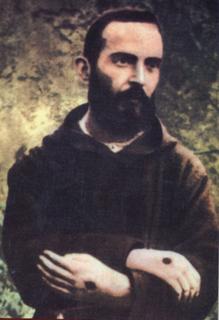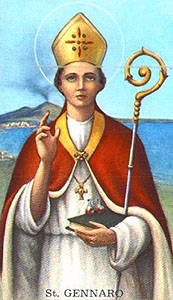Eucharist means..."thanksgiving"
Michael Dubruiel wrote a book to help people deepen their experience of the Mass. He titled it, How to Get the Most Out of the Eucharist. You can read about it here.
The following is an excerpt from the introduction:
Problems… I had the opportunity to speak about the Eucharist to various groups of people in almost every part of the United States since the release of The How To Book of the Mass, a book I wrote several years ago. No matter where I happened to be, I received the same response. A dissatisfaction of sorts often rooted in how things were being done at their home parish.
Some of these same people longed for the “old” days of the Tridentine liturgy (and an alarming number of young Catholics). Yet I know from conversations that I've had with older priests that the old liturgy was subject to many of the same problems as today's Mass.
What was different forty years ago is the attitude that Catholics brought to the Eucharist back then was more sacrificial. A term that one often heard older Catholics use was "to offer it up" when things didn't go the way you expected or wished. This sacrificial attitude made a previous generation of Catholics focus not on themselves but on what God wanted of them.
By the time I attended a Catholic College in the early 1980’s people were being made fun of if they still had this attitude. I remember a very pious student one day suggesting to another student who was complaining about the difficulty of an upcoming test that he “offer-up” the suffering he was undergoing for the poor souls in Purgatory. His fellow student replied, “Are you nuts?” Everyone at the table laughed. It was symbolic of a change in the Catholic psyche.
The Eucharist was viewed almost entirely as a banquet; a picnic table replaced the stone altar in the chapel, it was moved from the front of the chapel to the center. The emphasis was more horizontal. The pendulum was swinging in the other direction, after many years where it would have been difficult to think of the Mass as a meal, now it was nearly impossible to encounter the Eucharist as a sacrifice.
Some twenty years later the pendulum is returning to the middle. My college chapel has been renovated yet again. The table is gone replaced by a very ornate altar that is located in the middle of the congregation. Images once removed have returned and there is more of a flow of the feeling that both God and humans occupy this worship space.
Pope John Paul in his Encyclical on the Eucharist Ecclesia de Eucharistia has mentioned as one of the modern “shadows” or problems with the way Catholics understand the Eucharist is that "Stripped of its sacrificial meaning, it is celebrated as if it were simply a fraternal banquet[i]."
It is my belief that this downplaying the sacrificial nature of the Eucharist is the main reason that many of us are not getting the most out of the Eucharist. Over time we lose sight of why we even go or worst the Eucharist gets relegated to one more social obligation that one can easily decide not to attend.
[i] Ecclesia De Eucharistia (10)
How to Get the Most Out of the Eucharist gives you nine concrete steps to help you join your own sacrifice to the sacrifice of Christ as you:
- Serve: Obey the command that Jesus gave to his disciples at the first Eucharist.
- Adore: Put aside anything that seems to rival God in importance.
- Confess: Believe in God’s power to make up for your weaknesses.
- Respond" Answer in gesture, word, and song in unity with the Body of Christ.
- Incline: Listen with your whole being to the Word of God.
- Fast: Bring your appetites and desires to the Eucharist.
- Invite: Open yourself to an encounter with Jesus.
- Commune: Accept the gift of Christ in the Eucharist.
- Evangelize :Take him and share the Lord with others.






